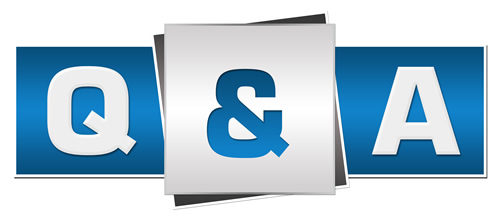Question:
“I was born in Mexico. I’m 32 years old. My mother is a U.S. citizen. She filed an immigration petition for me about 11 years ago. My husband, 33 years old, is from Chili. He does not have legal papers. He has no relatives to sponsor him for a green card. He is listed as a dependent spouse on my papers. But I still have a long wait, over 9 more years before I can get a visa and interview date. Is there any hope to speed things up?”
(Submitted by Ofelia Y., Coachella, CA)
Answer:
As a matter of fact, I think you might be able to speed up the immigration process for both and your husband. It requires using rules known as the cross-chargeability provisions.
Allow me to explain.
When you mention interview date, I think you’re really talking about what immigration lawyers and officers call a priority date.
Here is a simple way to understand what this means.
A priority date is usually the date your mother’s I-130 immigrant relative petition was filed on your date. This date is like an invisible ticket showing your place in line.
When your priority date is current, your ticket has been “called” and it is your turn to file your green card application.
Or in more proper terminology, a visa is now available for you to proceed to the next step in the permanent residence process.
Unfortunately, when you are in certain family visa categories, it takes longer for your priority date to get to the front of the line.
As a married adult daughter of a U.S. citizen, you are in one of the slow categories, one of the slow lines. This is why you have been waiting a long time already, and why you have so much longer to still wait.
However, based on what you wrote, I think there is a possible solution for you.
Since your husband is from another country, you can use his country under what is known as the “cross-chargeability” provisions for priority date purposes. These are little known rules which strive to prevent the separation of husband and wives who were born in different countries.
It involves an often overlooked but potential game-changing procedure for you and your husband.
What Is Cross-Chargeability?
When an immigration petition is filed, the country of chargeability is the country of the immigrant beneficiary’s birth.
This means the priority date must be current and a visa from the beneficiary’s country must be available, before an immigrant can file his or her green card application.
In some cases, there are multiple beneficiaries.
For instance, if a U.S. citizen brother files a sibiling green card petition for an immigrant brother who is married, the immigrant brother is the principal beneficiary and his wife is considered a derivative beneficiary.
When the principal beneficiary and the derivative beneficiary have been born in different countries, the concept of cross-chargeability may apply.
The availability of visas does not move at the same pace for all countries. Because some countries have more applicants than others, those with more petitions will take longer to process.
In some cases, even though a visa may not be available from the principal beneficiary’s country, there might be visas available for the derivative beneficiary’s country.
Under such circumstances, Iit may be possible to charge the visa to the country of birth of the derivative beneficiary. This is known as cross-chargeability.
How Does Cross-Chargeability Apply
To Your Immigration Case?
For instance, your husband’s country of birth is Chili. If Chili is used as the country for figuring out your priority date, you do not have to wait as long as if you continue to use Mexico.
Your visa from Mexico will is not available for nine more years. His visa from Chili is available now.
Why does this happen?
In general, because there are a lot more people seeking immigration benefits from Mexico than from Chili.
For Chili, the U.S. government is already working on cases for married children of U.S. citizens which were filed ten years ago. This means, by seeking cross-chargeability, you and your husband can apply right now under your mother’s I-130 family petition. You can move, quickly, to the front of the line.
This change, of course, does not automatically happen.
You need to provide the U.S. government with concrete evidence that you qualify to use the cross-chargeability provisions to immediately file for permanent resident status.
Naturally, you should discuss this possibility in more depth with an immigration lawyer to ensure you qualify for a green card before filing your application for residency.
There are still several other questions which have to assessed, such as when and how you and your husband entered the country. You do not want to overlook these issues.
After all, even if you meet the cross-chargeability rules, there may be other requirements which could trip you up.
If you have an ongoing case right now, and you have immediate case-specific questions, you may want to visit our Immigrant Relative Petitions And Family Visas Attorney Services page for more information.
Or you might want to schedule a 1-On-1 Personalized Strategy And Planning Session to discuss the ins and outs of your case in depth.





